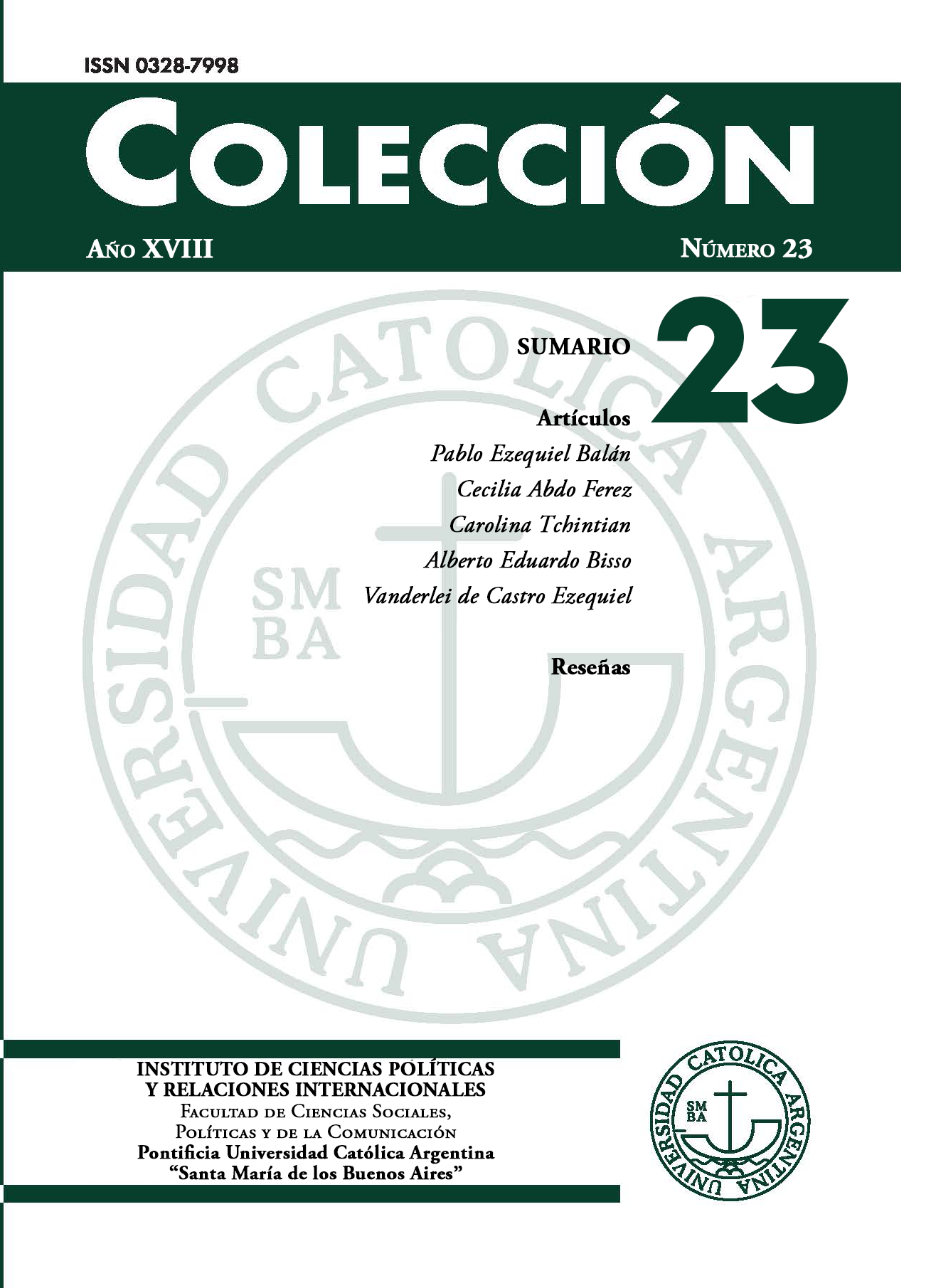Determinants of state capacity in the Argentinian provinces
Keywords:
Federalism, Subnational politics, State capacityAbstract
Why do Argentine provinces differ in their state capacity? A recent family of models predicts a positive relationship between democracy and extractive capacity, and a negative relationship between income inequality and extractive capacity (Besley y Persson 2009; 2011; Cárdenas 2010). These hypotheses are tested at the subnational level of a federal country: the Argentine provinces in the period 1991-2001. Results show that (i) the level of subnational democracy has a negative effect on the extractive capacity of local governments, (ii) income inequality has a negative effect on extractive capacity, and (iii) the effect of federal transfers on extractive capacity is not statistically significant. From a theoretical point of view, the most important result is the negative association between the level of subnational democracy and the level of extractive capacity: this raises some doubts on most of the recent literature on the subject and opens the possibility of an “olsonian logic” (Olson 1993): governors with less restrictions could have an “encompassing interest” in their subnational polities.Downloads
Download data is not yet available.
Downloads
Published
2023-04-11
How to Cite
Balán, P. E. (2023). Determinants of state capacity in the Argentinian provinces. Colección, (23), 13–54. Retrieved from https://e-revistas.uca.edu.ar/index.php/COLEC/article/view/867
Issue
Section
Research Articles
License
Copyright (c) 2018 Colección

This work is licensed under a Creative Commons Attribution-NonCommercial-ShareAlike 4.0 International License.










 Colección
Colección